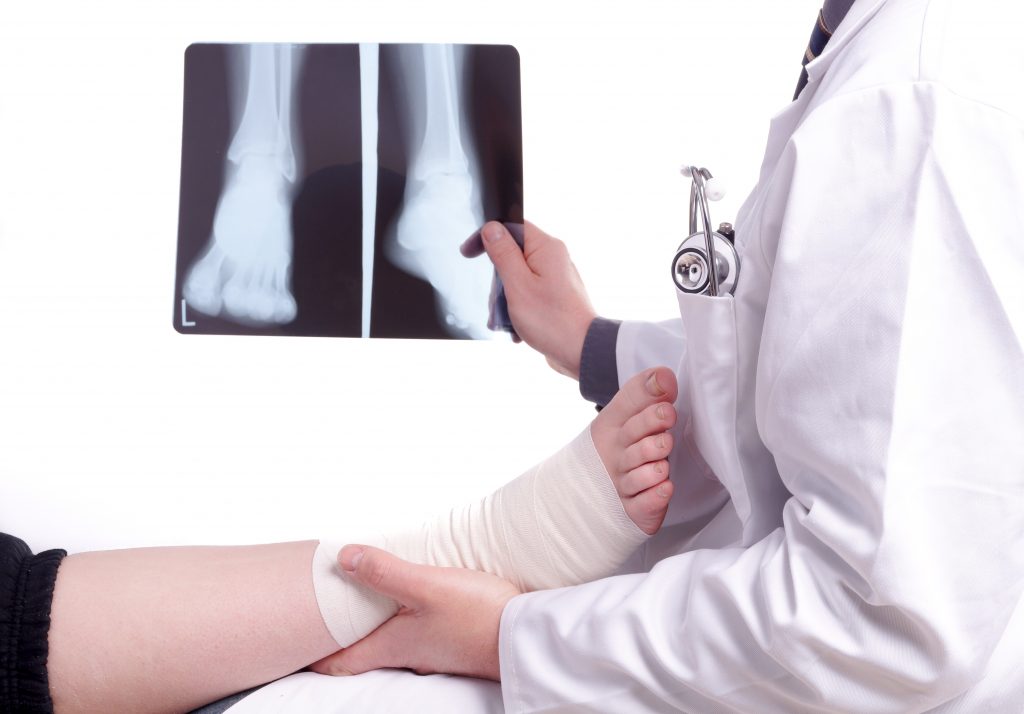Reconstruction of the Foot & Ankle
Conditions that May Require Reconstructive Surgery

Surgical reconstruction is a treatment option—or in some cases may be required—to treat several conditions associated with misaligned bones, joints, or other tissues. Some of the most common include:
- Bunions
- Hammertoes
- Flat feet
- Broken bones
- Achilles tendon ruptures
- Other traumatic injuries
- Chronic instability in the ankles
- Arthritis
Do You Need Surgery?
Reconstructive surgery is often considered for a foot or ankle problem if the following conditions are met:
- Pain and/or reduction in motion or function impairs everyday activities
- Conservative treatments are not indicated, or they have proven insufficient
Conservative alternatives to reconstructive surgery may include custom orthotics, physical therapy, or other measures.
What Are the Goals of Reconstructive Surgery?
The primary goal of reconstructive surgery is to the restore a normal anatomical alignment and biomechanical function to the feet and ankles, which in turn will allow the highest possible functioning of the feet. In other words, the goal is to reconstruct a portion of your anatomy so that you can engage in everyday activities without pain or restriction.
The cosmetic appearance of your reconstructed feet or ankles is a secondary consideration. We will do everything we can to ensure your feet look as normal as possible, including using techniques to reduce scarring. However, making sure your feet work as well as possible is the most important goal.
What Kinds of Techniques Are Involved in Reconstructive Surgery?
Every situation is unique. The best surgical approach and procedures for your foot or ankle reconstruction will depend on the location and severity of your deformity, your age and health status, your lifestyle goals, your medical history, and other factors.
Procedures may include, but are not limited to:
- Trimming or removing enlarged bone ends
- Cutting and realigning bones (osteotomy)
- Fusing arthritic joints (arthroplasty)
- Repairing, reinforcing, or transplanting tendons and connective tissue
- Arthroscopic surgery—a minimally invasive procedure using small incisions, specialized tools, and a microscopic camera called an arthroscope to perform the surgery.
Both Dr. Spencer and Dr. Rodriguez have received extensive training in foot and ankle reconstructive surgery during their residency training and in private practice. Though we will always do our best to help you avoid the need for surgery, if it does become necessary, rest assured that you’re in good hands. To schedule an appointment, give us a call today at (949) 364-9255.
Contact Us
Robert Spencer, DPM
Nitza Rodriguez, DPM
Mario Porciello, DPM
Map & Directions
333 Corporate Drive, Suite 230, Ladera Ranch, CA 92694
Tel: (949) 364-9255 (WALK)
Fax: (949) 364-9250
Office Hours:
Monday - Friday: 9am - 5pm
*(Lunch 12 noon - 1pm)
